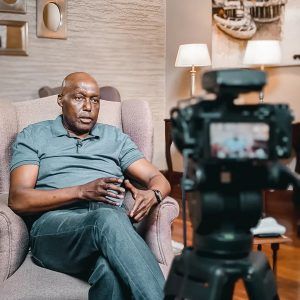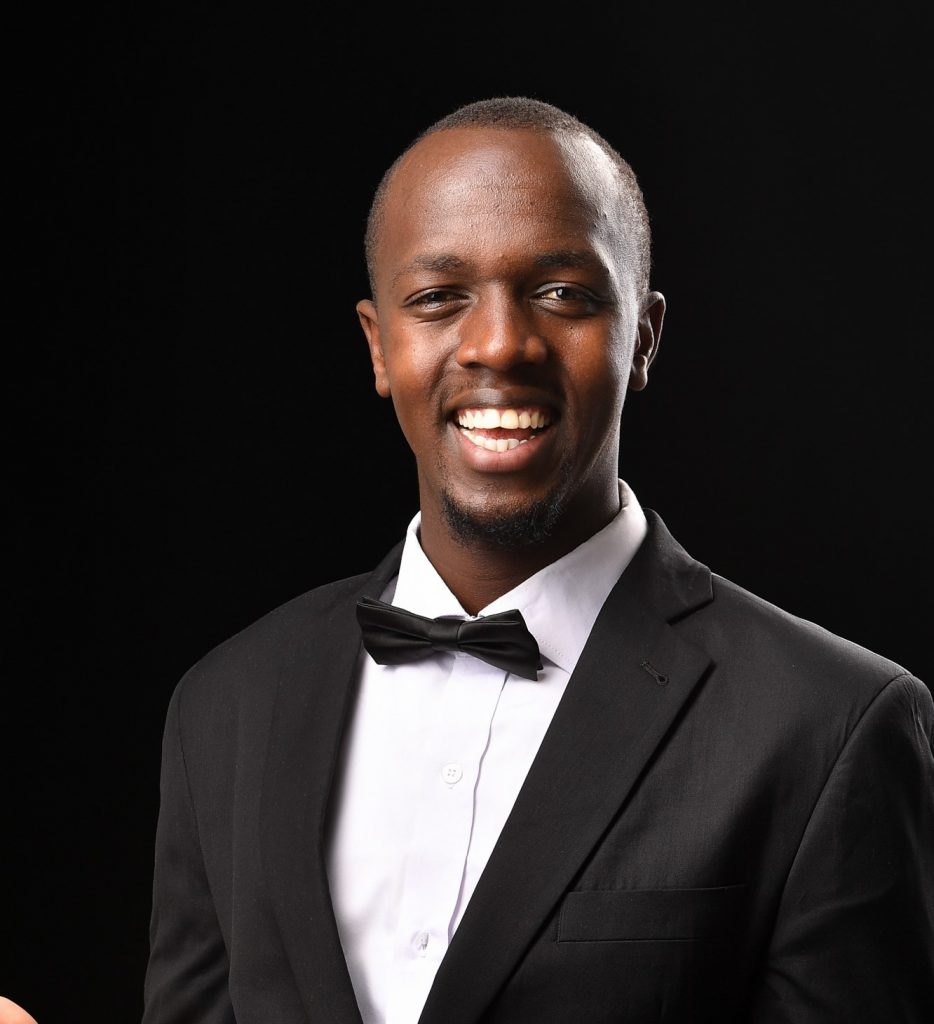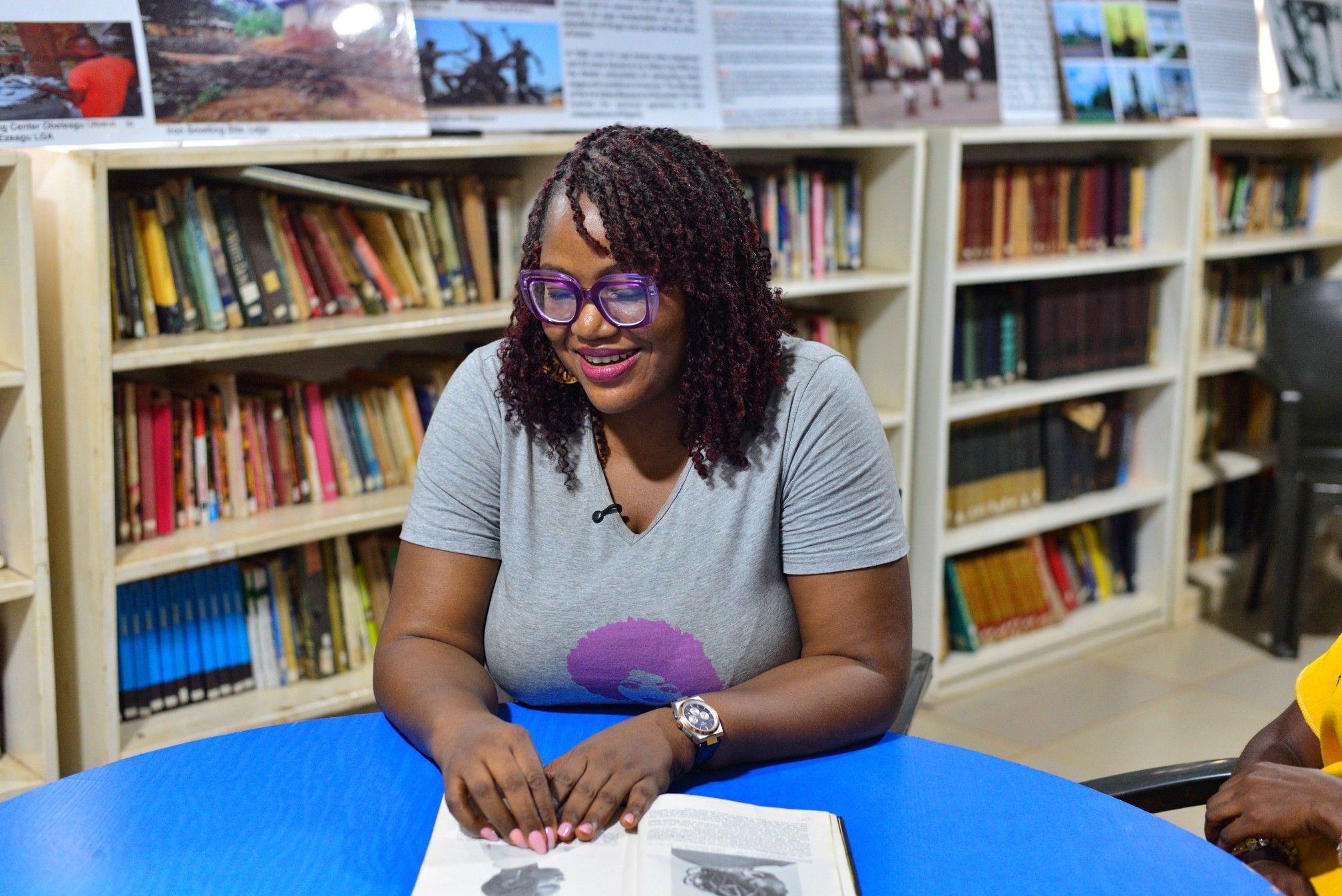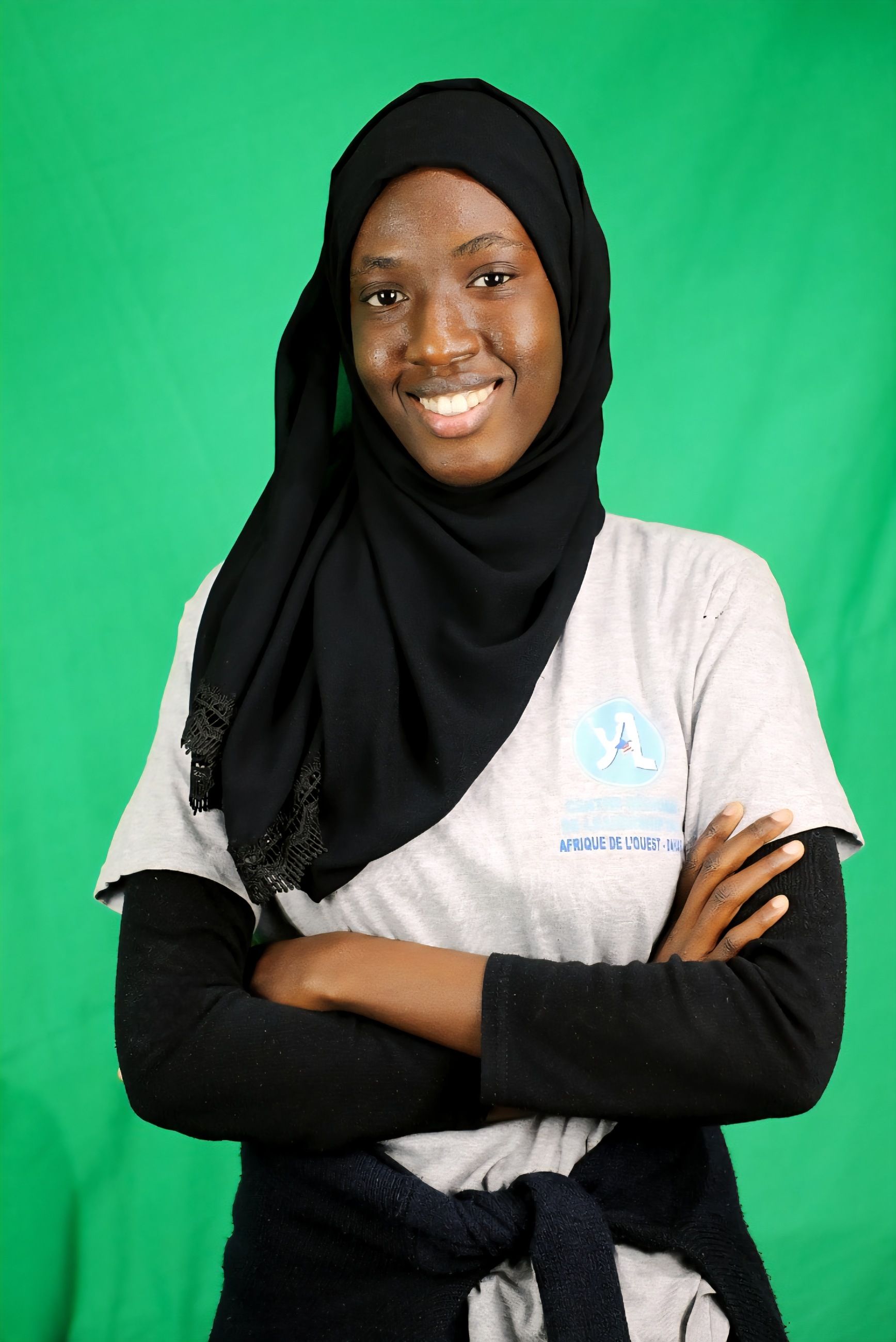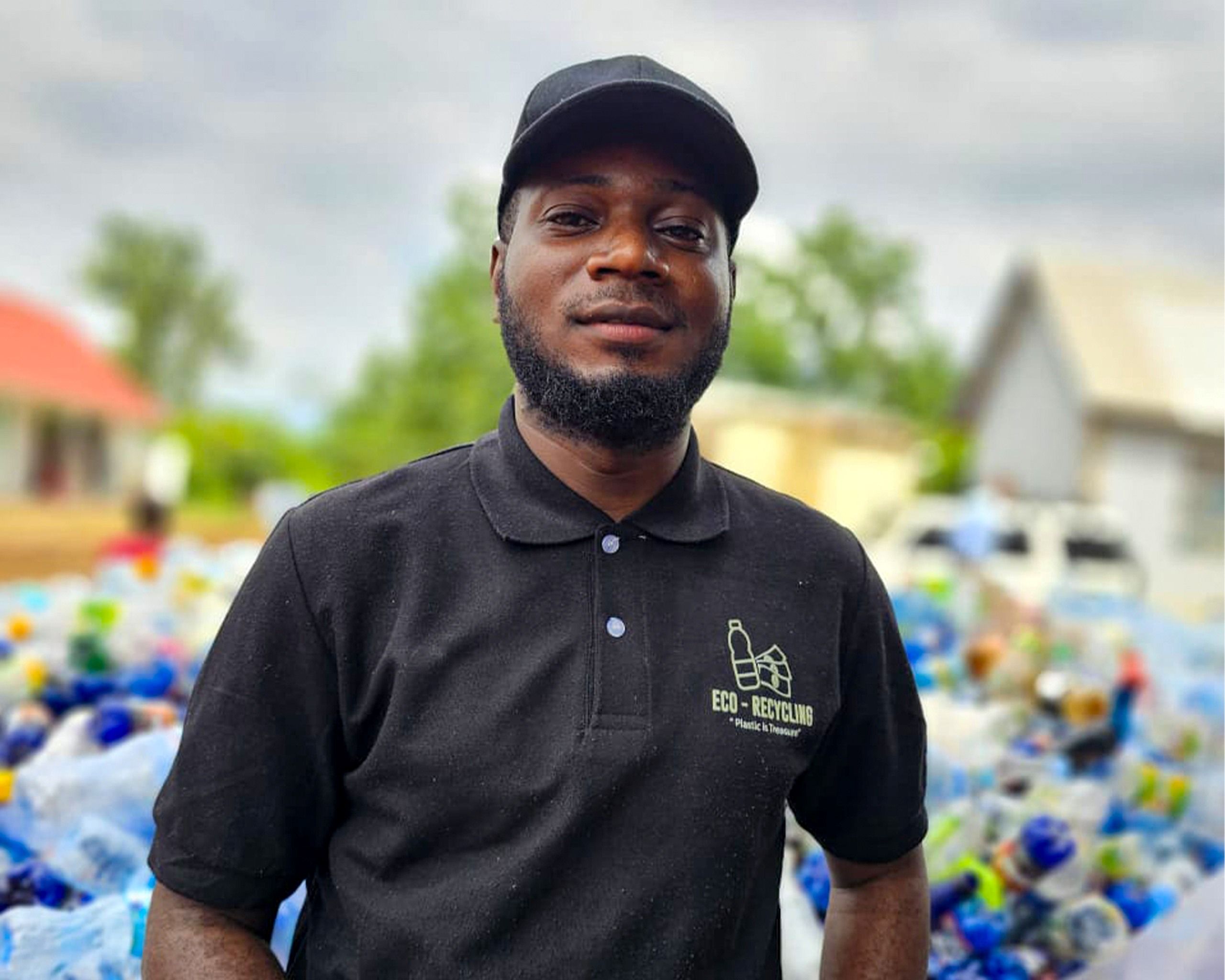21,333 hours. These hours translate to two years, five months, and nine days. That is the amount of time Captain Chris B. Kariuki has spent in the air. Here is the kicker, these are only flight hours with the Kenyan national carrier, Kenya Airways. Before joining Kenya Airways in 1988, he was at the Kenya Air Force for 11 years. Easily, Captain Chris, or as he was popularly known in the airline as CB, could have spent more than three years in the air. Quite impressive.
As he was retiring, he gave his first-ever media interview to Richard Njau who runs a YouTube channel, Cleaning The Airwaves – CTA. In his 65 years, Captain CB has amassed enough experiences and stories to create a series. Here is a snapshot.
The beginning
One fine morning in 1956, Kamirithu village in Limuru woke up to dance and ululations coming from their chief’s homestead. Five ululations according to the Kikuyu culture ushered Chris Kariuki into the universe. At the time, no one had any idea what would become of him. They could only wish him well in the course of his journey under the sun. Suffice to say, he has done well for himself.
Being the son of a chief, he was able to go to a good school. He joined Tigoni primary school. At the time, he was the second black child in that school. By the time he left primary school, the school's black student population had grown to 10 per cent. CB grew up in a multi-racial environment. To an extent, this played a part in his choice of a marriage partner − but let’s not jump the story.
Growing up, was becoming a pilot in his ambitions? Far from it. He would see air crafts fly above, but never once did it cross his mind that he would like to fly one. His exposure in the village was limiting his scope of capabilities.
Captain’s education
After his primary school education, he joined Lenana High School, then known as the Duke of York. CB was not the smartest kid in class. In fact, he jokes that he did the bare minimum to get by, so going to Lenana gave him some ease because he was in a different school from his brother who was smarter and who, in primary school, CB would quite often be compared to.
But even at Lenana, flying had not appeared on his radar. His first encounter with the thought of flying was after he was taken as a cadet.
Becoming a cadet
CB saw an advert for cadets. In the Kenyan military, a cadet is the most junior officer among commissioned officers. It is the rank that officers hold immediately after training. Each military branch advertises for its own cadet positions. You can either be taken as an Army cadet, Navy cadet, or Air Force cadet. When Captain saw and applied for the cadet position, he did not know what branch of the military he was applying to. Nonetheless, he just applied. Upon admission, he realized it was the Air Force. That is when the idea of flying finally came to him.
The process of being recruited to the air force started with 30,000 applicants, but only the best 30 got in. CB was among the 30 successful applicants. As the Captain reflects back on his recruitment, he says that the process was very fair back then. Those who got in deserved to, as no one bribed their way in, and no one was given special preference.
Becoming a fighter jet pilot
Captain CB joined the air force at a very strategic time. The air force branch of the military was fairly new and they were expanding rapidly. This was in 1976. The air force had entered a deal with the United States and they were to purchase the F5 fighter jets. In the country, no one was qualified to fly such aircraft.
So, captain CB and his fellow recruits were put on an accelerated training program. Instead of the six-month combat training given to all military recruits despite the military branch, they did two months. After two months they came back to military flying school at Eastleigh.
At the flying school, they did the classwork was done in tandem with flying practicals. They would go to class in the morning and fly in the afternoon. At the time, they were practising on a small aircraft, the bulldog, similar to a Cessna.
Two months later he was on a flight to Texas for the proper F5 flying training. He was among the 15 selected to go for the training. In his own reflection, he attributes the fast pace of his life trajectory to luck. As an individual though, as much as there was luck, he is a diligent hardworking man worthy of the opportunities he got. We all get lucky from time to time but without personal effort, luck cannot be sustained.
Upon landing in Texas, they went to Del Rio. For 18 months, they trained with the T37 and T38 which are trainers for the F5. It was while CB was in Texas that the first President of Kenya died, on 22nd August 1978. Interestingly, the Kenyan team in training asked for two days to mourn their president. When given the time off, however, they did everything but mourn. They went out clubbing for two days.
Meeting Gina Din
The training in Texas prepared them for the F5 fighter jets. Upon returning to Kenya, they were positioned at the Nanyuki Airbase. Since the airbase was still in construction, some of them including CB were housed at the SportsMan’s Arms hotel.
Captain CB is tall. At the SportsMan’s Arms, he was given a small bed that was uncomfortable sleeping on, for his legs jutted out from the edges of the end. He walked to the reception, presented his concerns, and hoped someone would fix his problem. No one did, for a while. This got to Chris’ nerves. One evening after coming from the Nanyuki base and finding that no one had attended to his concerns, he walked into the office of Mr. Din, the owner of the hotel, and called him out by his name.
Like a soldier defending his general, Mr. Din’s daughter, Gina Din, stood up to this giant of a soldier and told him, “He is Mr. Din to you.” Mr. Din intervened and justified CB’s aggression and the bed got changed. Later that evening, CB went to the bar to have a drink. Gina came to him and apologized for the altercation. A conversation was sparked. This girl that he first met at a moment of fury would later become his wife.
Gina is of Indian descent, and this naturally threw their new relationship into some trouble. A few members of both sides of the family questioned it. They thought, even hoped, that it was just a fling. But more than 40 years later they are still together. His multi-racial schooling was seemingly preparing him for this very crucial moment in his life.
1982 coup
Another moment that Captain attributes to his luck was in 1982. Towards the end of July, he was tasked to go to Wajir and be with the army as they were carrying out a war simulation. He was there as the air support liaison. The military exercise went well, and they came back to the Nanyuki base on the 31st of July.
Usually, as a military officer, when off duty, you should surrender your firearm. After returning from Wajir, they were required to surrender their pistols back to the military base. Unfortunately, the person in charge of signing back the guns was not there. One of Captain's friends got tired of waiting and went home with his gun. Luckily CB waited and surrendered his weapon.
That night he slept like a baby. At 5 AM in the morning, Gina received a call from the wife of Chris' colleague asking if Chris had been picked up. She informed Gina that there has been a coup. Gina woke Chris up and like the soldier he was, he was ready to go where the action was. But Gina stopped him.
After the coup was suppressed, it was discovered that it was some air force officers who were trying to overthrow the government. Chris and a friend who had joined him at the hotel had no clue what to do. They just stayed put for that day. They decided that the following day they would call the base.
Upon calling the base, they got picked up from the hotel by a military Landover. Shocking to them, when they entered the Landover, the driver called his senior and reported that two more had surrendered. Insinuating that Chris and his friend were perpetrators and that they had surrendered. Chris’ objections fell on deaf ears.
What followed was three weeks of protective custody at the King’ong’o maximum prison. They were detained there as the army which was pro-government tried to sort out the innocent ones from the guilty. After three weeks in prison, they were vetted to assess their suitability to be restored to their roles.
Luckily, things aligned for Chris. The first stroke of luck was that he was at Wajir with the army seniors who were part of the vetting committee, so to an extent, they could vouch for him. Secondly, he had handed back his gun. His friend, who had failed to surrender his gun, could not adequately explain why he went home with a gun on the night of a coup. Thirdly, his wife Gina had stopped him from going out that morning. Being away from the action had saved Chris.
During the vetting, they were being classified as green, yellow, and red. Green meant you could resume work. Chris was classified as Green. The yellow group needed more vetting, whereas the reds were to face the consequences.
After the coup, the air force was not the same and this contributed to CB leaving after 11 years of service. He left the military, having risen to the rank of a military captain.
Joining Kenya Airways
He went back to the United States for his commercial license and joined Kenya Airways (KQ) in December of 1988. Despite having military flying experience for 11 years, he joined KQ as a copilot at the lowest rank. This is how it works in the airline industry. When you join you start at the airline's lowest craft and work yourself up to the biggest craft as a copilot. Then you move back down to the smallest craft as the captain and move your way up. Captain CB says that for KQ this system works very well as everyone knows who is next in line for a promotion.
Captain CB has had an amazing career as a pilot, and luckily, he has not had any major occurrences while flying.
The same cannot be said of a few other pilots that he has worked with. The first accident that occurred while he was working with KQ was in Abidjan on 30th January 2000. The plane that crashed was an Airbus 300. Despite the trauma of this incident, captain CB still had to fly.
As he rationalizes it, he asks, if you are driving and on your way, you see a vehicle has had an accident, do you stop driving, or do you help where you can, sympathize and be keener while you continue your journey? He says that despite all the emotions after such an accident, as pilots they just have to reflect on the possible mistakes that could have led to the mistake, be more aware, and keep flying.
The Duala KQ accident in 2007 was thought to be Captain’s plane. When they travel the explicit route is not stated except to the people concerned with the particular flight. At the time of the fatal accident, Gina’s PR firm was handling the KQ account. So when an accident was reported, the then CEO, Titus Naikuni, called Gina to ask where CB was, and she said, West Africa. Titus Naikuni dropped the phone, fearing the worst. Luckily, it was not him.
Captain CB – The family man
Even as his career was growing, his family was growing too. CB is a father of two. He had a daughter in 1990 and a son in 1996. He confesses that a career as a pilot is fulfilling but it takes a toll on family and other relationships. Especially when the children are young, they see their father come and go every time, they really struggle with that and that also takes a toll on you.
In other relationships, since his schedule is not fixed and he is away most of the time, he misses a lot. He has missed funerals, weddings, parties, and graduations. Some people interpret that as hubris. Now that you are a pilot, you can’t make time for us. That's the thinking, especially for people back in the village. He was asked once, “Who will bury you now that you don’t attend other people’s burials?” It is hard to explain to such people why you can’t make it.
But his immediate family got to enjoy travelling the world. He would ensure that when he was travelling to a destination where he would stay for a while, he tagged them along and they got to see the world.
When not travelling with his family, he had his family of coworkers, the crew. Over the years he built incredible bonds with them. They even threw him a farewell party in New York during his last flight. He says he will dearly miss them.
Something he will not miss is the hotel stays. As he confesses, they are the most boring part of flying. Despite them staying in nice hotels, the monotony of alighting, taking a cab to a hotel, freshening up, going to the lobby for small chit chat, going back to the hotel room, and then back to the airport only to repeat that so many times, was the worst part. But the fun of flying cancelled that out.
Other ventures
While also flying he got to invest in various personal ventures. He encourages young pilots to also invest. As he explains, being a pilot is tricky as even if you know you will retire at 65, which he has been lucky to, your career can come to an abrupt end. He has witnessed his colleagues step out of the cockpit to go for a medical check and never return.
For pilots under 40 years, their medical checkups were done yearly. If there is a medical issue it has to be addressed first before going back to work. For pilots over 40, they have to conduct their medical checkups every six months. You never know what you’ll find in the checkup.
As Captain settles in his retirement, he has priceless moments to reflect and reminisce about. We wish him well, and may his luck, diligence, and hard work continue seeing him through his next adventure. But a good closing point for us is with the story of the messiah pilot he worked with while still in the air force.
The Messiah came down
In President Moi’s era, whenever the President would be returning from a trip abroad, he would be met with the F5 fighter jets at the entry of the Kenyan airspace and get escorted to the airport. Captain Chris did a number of those escorts. On the last escort, before the program was terminated, his partner who flanked the President’s plane on the opposite side faced some bad weather and lost control.
When a pilot loses a jet, he is supposed to eject, which he did. Captain CB escorted the president to the airport and then returned to Nanyuki base. In the midst of worrying about what happened to the other plane, they learned that they lost the plane but the pilot ejected safely.
As the pilot descended with his parachute, in a small village, the people thought it was the Messiah coming down. Some residents even bowed to him. But because of his nerves, he lit a cigarette and the villagers thought twice and came back to their senses. Captain CB jokes and says he would have gone with the moment and would have started blessing them.
Well, that is Captain CB for you. The man who has been flying for 44 years and spent more than three years of his life literally above ground. Definitely not the messiah but quite an impressive human being.
You will also love: ‘You’re Never Too Old, Never Too Late and Never Too Broken to Do Whatever It Is That You Want to Do’, Captain Nyambura Gathuru on Self-Reinvention

